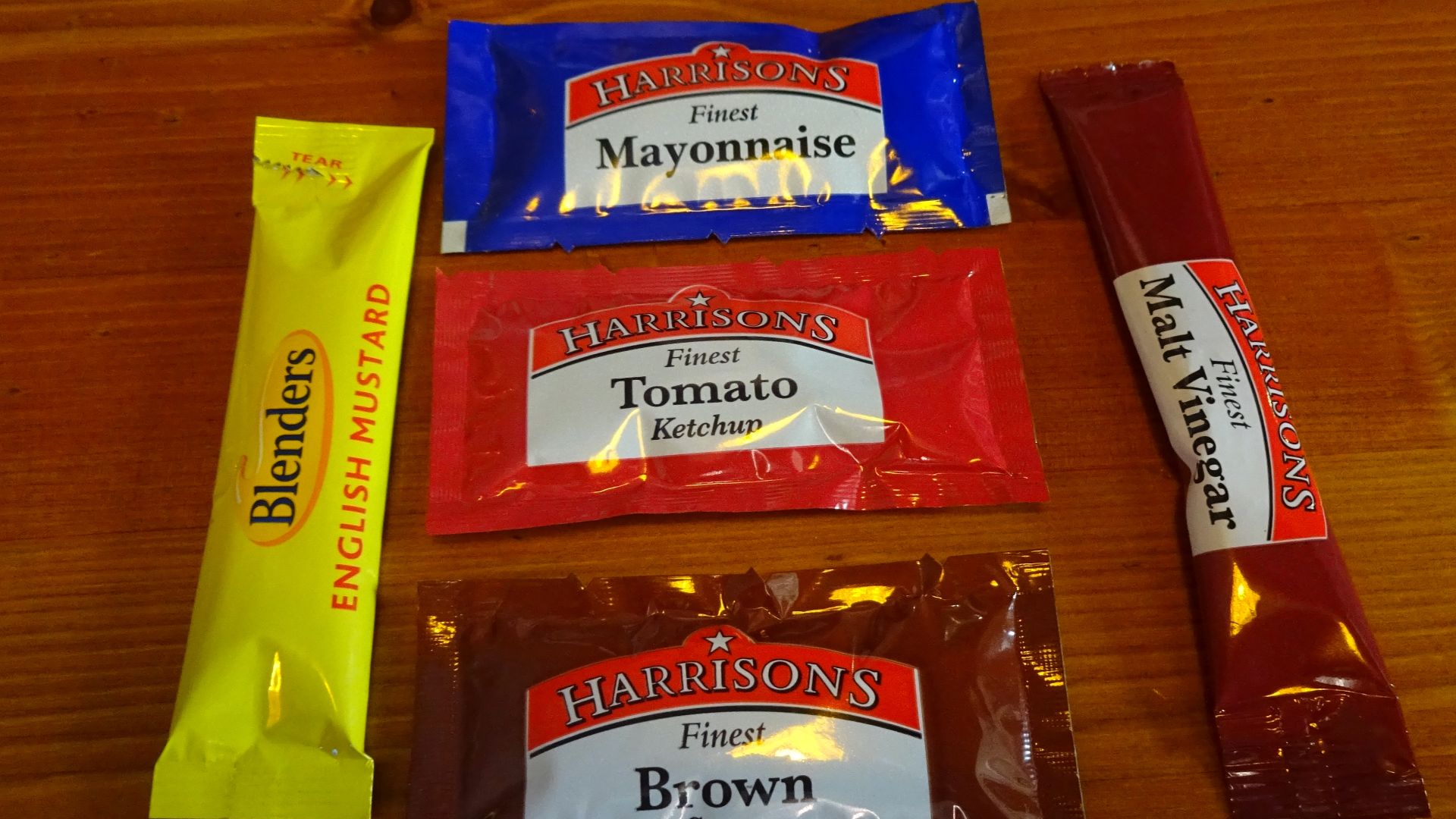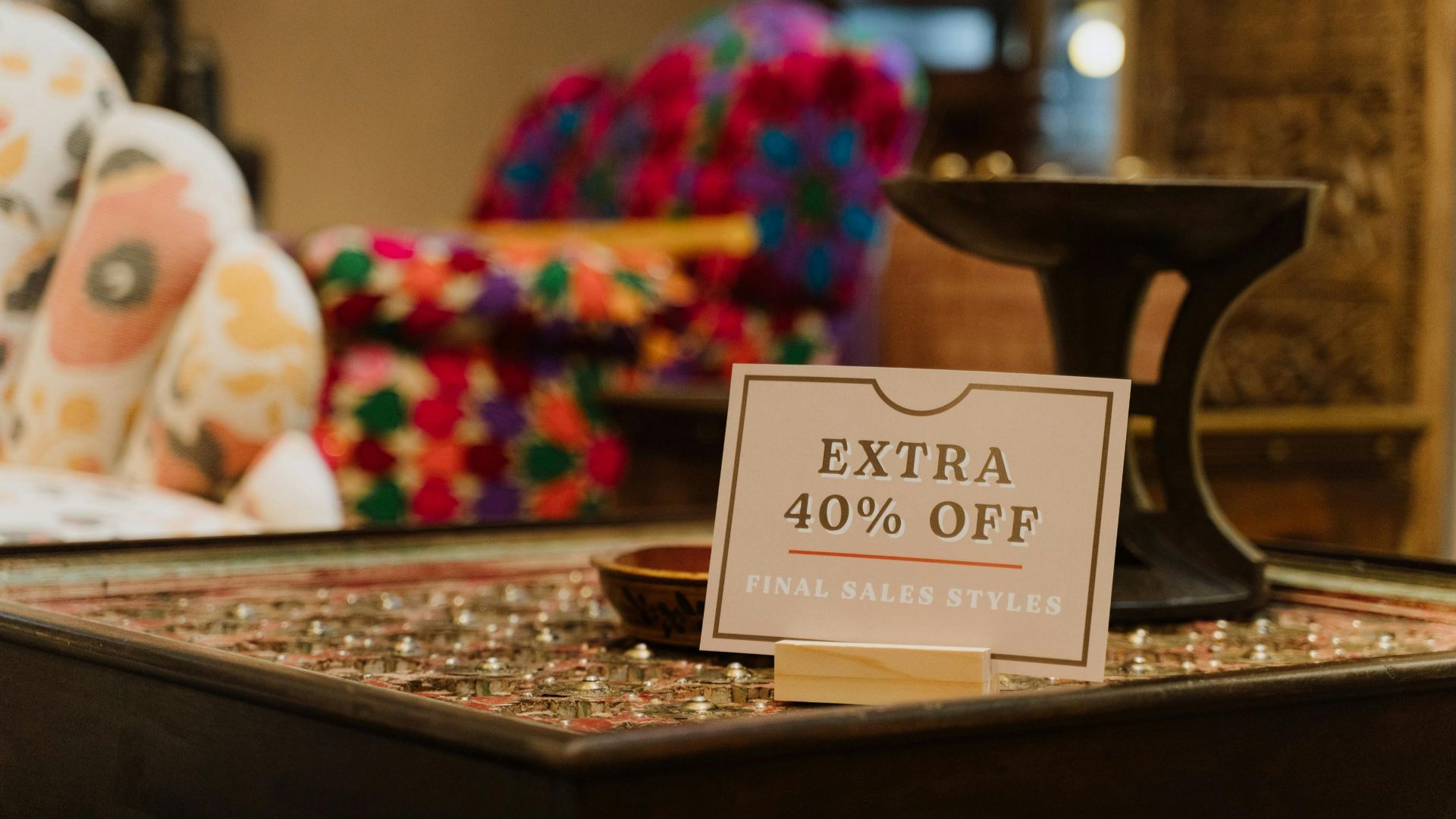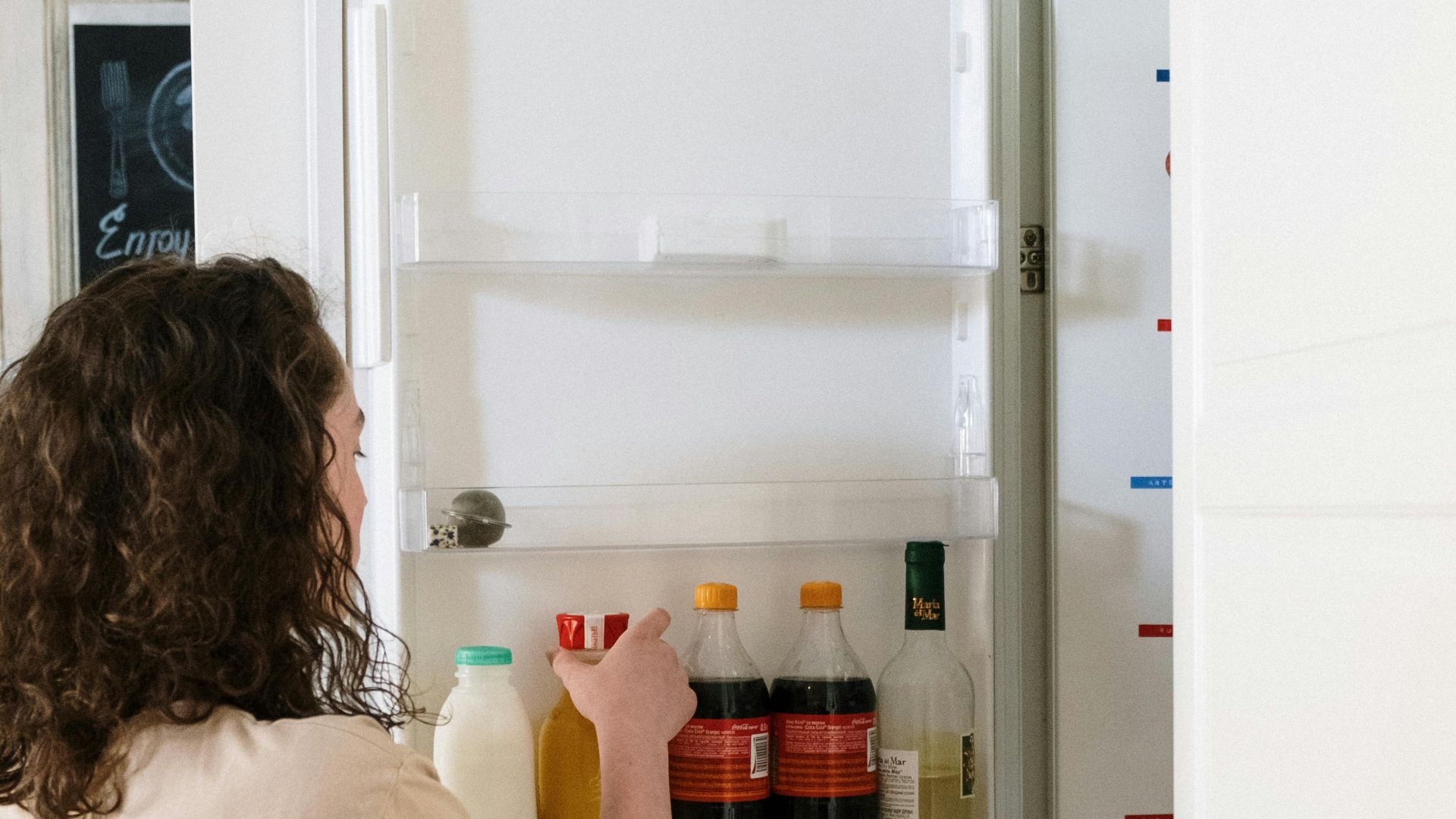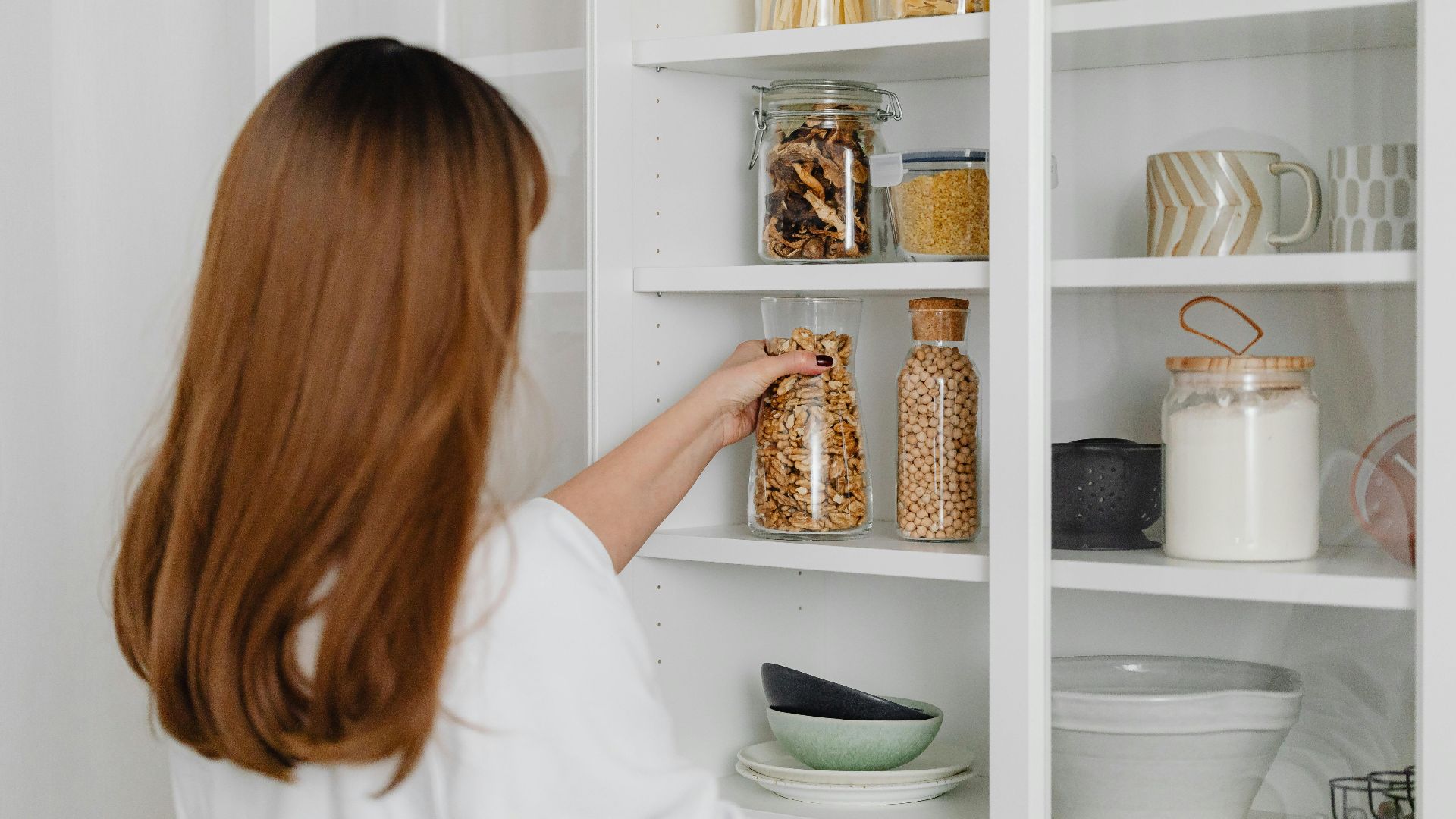Stretching Every Dollar
Duct tape fixed everything before DIY was cool. If your childhood involved creative solutions instead of store-bought answers, you'll recognize yourself here. These little habits still pop up even when your wallet isn't empty.

Hoarding Condiment Packets
Refrigerator door pockets overflowed with tiny packages of ketchup, soy sauce, and taco sauce collected from every fast food visit. What others saw as trash, you recognized as free supplies to make bland staples more palatable. These colorful packets represent a practical survival strategy.
Hoarding Condiment Packets (Cont.)
Even today, every drive-thru becomes a treasure hunt, calculating how many extra packets you can reasonably request without raising suspicion. This behavior tends to persist long after financial circumstances improve, with most adults who experienced childhood poverty continuing to collect condiments well into adulthood.
"Vintage" Clothes By Necessity
Long before sustainable fashion became trendy, you mastered the art of making secondhand clothing look intentional. The worn spots and faded colors that initially brought shame gradually turned into badges of resourcefulness as you developed creative layering techniques and strategic accessorizing.
Utilities As Luxury Items
The ritual of lighting candles wasn't for ambiance but a necessity when the power company finally followed through on disconnection notices. You would become adept at timing showers, homework, and meal preparation around the unpredictable schedule of service interruptions.
Utilities As Luxury Items (Cont.)
These experiences taught resource management in ways no classroom ever could. According to the National Energy Assistance Directors Association, millions of households experience utility disconnections annually in the United States. Children growing up in these environments develop unique skills.
Stretching One Ingredient Endlessly
When money was tight, every ingredient had to go the distance. A single bag of lentils or rice was often seen as the base for multiple meals, such as soups, stews, or stir-fries. Leftovers were never wasted but reinvented. Well, this practice taught resourcefulness, meal planning, and the true value of food.
 Burkhard Mücke, Wikimedia Commons
Burkhard Mücke, Wikimedia Commons
Memorizing Food Stamp Arrival Dates
The calendar hanging in the kitchen had certain days circled in red—for when benefits arrived. Your family's eating patterns followed a predictable cycle: relative abundance during the first week, careful rationing by the third, and creative meal assembly in those final challenging days before the cycle reset.
Practical Gifts Only
Your birthday wish lists evolved differently from your friends'. While they dreamed of video games and trendy toys, you learned to hope for things you needed anyway—new shoes when the old ones pinched, a winter coat that actually fit, or supplies for the upcoming school year.
 Helena Jankovicova Kovacova, Pexels
Helena Jankovicova Kovacova, Pexels
Practical Gifts Only (Cont.)
This pragmatic approach to celebration shaped your relationship with material goods throughout life. The wrapping paper revealed socks and school supplies rather than the toys advertised during Saturday morning cartoons. These presents weren't disappointing because you understood the mathematics of necessity from an early age.
Thrift Stores As First-Choice Shopping
That distinctive scent of secondhand stores still triggers complex emotions—pride in finding treasures mixed with memories of hoping classmates wouldn't recognize your "new" clothes. These were strategic missions with clear objectives. Your parents taught you specialized vocabulary to understand the difference between "slightly worn" and "well-loved”.
Thrift Stores As First-Choice Shopping (Cont.)
Families on a budget relied on secondhand stores for nearly everything, be it clothes, furniture, books, or even holiday gifts. Shopping there taught you early lessons in value, creativity, and contentment. Besides, finding a “good as new” item felt like winning something truly special.
Modest Christmas Mornings
Family traditions took on greater significance when presents were few. These included homemade decorations, special foods prepared only once a year, and games that cost nothing to play but left lasting memories. The emotional preparation began weeks earlier as you carefully managed expectations.
Hiding Your Smile
Every morning brought decisions about how to tackle social interactions while minimizing exposure of teeth that might invite ridicule or assumptions about your family's circumstances. Reality tells a painful story. Children from families below the poverty line receive comparatively less preventative dental care than their middle-class counterparts.
Dreading School Supply Lists
"Just reuse last year's folder," your mom would suggest, her voice tight with the particular strain that money conversations always brought. Every item on the teacher's list became a negotiation, what was truly essential versus what might be obtained later.
Dreading School Supply Lists (Cont.)
The experience of watching classmates casually unpack brand-new everything while you carefully preserved each pencil and folder created early lessons in both resource management and social inequality. That seemingly innocent school supply list circulated each August represented a financial crisis in your household.
Living For The Free Lunch Line
Whether your school used colored tickets, separate lines, or digital systems, you developed a sixth sense about who else shared your situation. The kids who ate every bite, who sometimes asked if you were going to finish yours, who never complained about the menu—these were your unspoken community.
Diy Expert By Age 10
Problem-solving was your family sport. When the car wouldn't start, you knew exactly how to pop the hood and jiggle the battery cables. When the TV lost reception, you became an expert at aluminum foil antenna sculptures. These were skills that felt like superpowers in your resourceful household.
Hand-Me-Downs As Fashion
That "unique style" wasn't a fashion choice but a practical reality of wearing clothes that had already lived full lives with siblings, cousins, or neighbors. The holes in your jeans were "designer distressing”. The too-short sleeves were "three-quarter length”.
Hand-Me-Downs As Fashion (Cont.)
Then came in the faded colors, which were “perfectly broken in”. It wasn't until high school, when a wealthier friend casually mentioned donating her old clothes to charity, that you must have connected the dots about where some of your "new" items might have originated.
Duct Tape Home Repairs
The silver tape holding your world together became such a common sight that you barely noticed it anymore. The broken window covered with a plastic sheet and secured with duct tape lasted three winters. This practical education often translates to adult self-sufficiency that more affluent peers may never develop.
Clearance Sale Radar
You could spot the red clearance stickers from across the store, your eyes naturally drawn to the sections where prices had been slashed multiple times. The final days of seasonal merchandise, damaged packaging sections, and discontinued items—these represented prime hunting grounds for necessary goods at dramatically reduced prices.
Paper Towels As Special Treats
The paper towel roll sat high on the shelf, reserved for truly exceptional messes or rare company visits. Spills were handled with rags made from old t-shirts, windows cleaned with newspaper, and meals served on reusable plates, even when convenience suggested disposables.
Paper Towels As Special Treats (Cont.)
When friends casually tore off sheets for minor cleanup, you would watch with a mixture of amazement and anxiety at what seemed like extravagant waste. A roll could last weeks because every sheet mattered, reminding you that convenience always came with a price.
Never Hosting Friends
Your social calendar operated on a one-way system—you visited other homes but rarely reciprocated with invitations to your own. The explanations became automatic: "My mom's really strict about having people over" or “We're repainting this weekend”. The real reasons were more complicated, though.
Never Hosting Friends (Cont.)
These included the unpredictable heating situation, the furniture held together with duct tape, or the carefully orchestrated sharing of limited space that outside observers would disrupt. When you finally convinced your mother to let you host a sleepover, it would become an event of epic proportions.
Contributing To Family Bills Early
Your first official paycheck at fifteen wasn't celebrated with a shopping spree but quietly handed to your mother to help cover the electric bill. While friends viewed their after-school jobs as sources for entertainment money, your employment represented a critical contribution to household survival.
Contributing To Family Bills Early (Cont.)
The responsibility created a different relationship with money—understanding it as a collective resource rather than an individual luxury. Many adults who grew up with these responsibilities continue supporting their families financially long after their peers have established independent households.
Missing Out On Fee-Based Activities
The casual announcement about a field trip fee sent your stomach dropping, knowing you'd need to craft another creative excuse for non-participation. School events, sports requiring equipment purchases, and extracurricular activities created a parallel universe of opportunity visible but inaccessible to you.
Car Troubles As Disasters
The distinctive sound of your family car struggling to start triggered immediate anxiety. A repair bill didn't mean budget adjustments, but impossible mathematics, choosing between transportation to work and other essential needs. Elaborate contingency plans would be made for vehicle failure.
Car Troubles As Disasters (Cont.)
Exactly which bus routes could substitute, which neighbors might offer rides, and how many miles were walkable in different weather conditions were all decided. Generally, families living paycheck-to-paycheck delay non-emergency vehicle repairs for several months, compared to a few days for middle-income households.
Parents Missing School Events
When teachers made comments about parental involvement, you absorbed the unspoken judgment while knowing the truth—your parents would have been there if doing so didn't mean losing critical income or even their jobs. Multiple minimum wage positions with no paid time off created impossible choices.
Parents Missing School Events (Cont.)
The calendar posted on the refrigerator became a source of quiet dread when school events appeared, requiring conversations about whether this one might be important or not. You became adept at managing your own expectations, learning not to mention upcoming events until the last possible moment to minimize disappointment.
Empty Bottles Turned Upside Down
The shampoo bottle stood upside down in the shower, the last drops collecting at the opening. Toothpaste tubes were meticulously rolled from the bottom, then cut open to access the remaining paste. Lotion containers were scraped clean with popsicle sticks.
Empty Bottles Turned Upside Down (Cont.)
This wasn't occasional thriftiness but standard operating procedure in a household where replacement products represented significant expense rather than routine shopping. You learned precisely how much water to add to nearly empty containers to extend their use for one more day.
Food Insecurity Habits
The refrigerator was never completely bare, but certain weeks it contained puzzling combinations that required creative meal assembly. You became skilled at assessing food supplies, instinctively tracking expiration dates and mentally calculating how many meals remained before replenishment would be possible.
Food Insecurity Habits (Cont.)
These habits were absorbed through observation and necessity, creating lasting relationship patterns with food that persisted into adulthood. Even with full shelves, the thought of running out triggered real anxiety. You might buy in bulk, keep extras of everything, or feel restless when supplies get low.
Adult Responsibilities As A Child
While classmates complained about basic chores, you managed household operations that matched adult responsibilities. Supervising younger siblings wasn't occasional babysitting but a daily childcare duty. You translated important documents for non-English speaking parents and understood the household budget intimately enough.
Adult Responsibilities As A Child (Cont.)
These responsibilities created a distinctive maturity often mistaken for natural temperament rather than circumstantial development. You tackled systems designed for adults, learning to modulate your voice to be taken seriously during important phone calls and developing strategic thinking skills through necessity.
Knowing Exact Prices Of Everything
The mental math happened automatically—calculating price per ounce, comparing across brands, and maintaining a running total while shopping to ensure you stayed within budget. Some people knew exactly how much everyday items should cost and could detect price increases immediately.
Home Remedies Instead Of Doctors
The medicine cabinet contained an eclectic pharmacy of folk wisdom—honey for coughs, baking soda pastes for insect bites, and specific temperature thresholds for determining when fever warranted genuine concern. Doctor visits represented absolute last resorts reserved for undeniable emergencies.
Home Remedies Instead Of Doctors (Cont.)
Well, most illnesses and injuries were managed through home care protocols refined through generations of necessity. While friends received medical attention for relatively minor concerns, your family operated on different decision matrices, carefully assessing whether symptoms justified the financial burden of healthcare costs.
Relatives As Vacation Destinations
Unfortunately, your "vacations" meant visiting relatives in different cities. Talk about practical travel solutions that combine necessary family connections with the only affordable option for experiencing different environments. Sleeping on cousins' floors or crowded into spare rooms became normal travel accommodations rather than hardships.
Making Toys From Trash
Empty cardboard boxes turned into spaceships with meticulous detail drawn in marker. Plastic bottles became bowling pins, old socks metamorphosed into puppets, and stick collections served as everything from wizard wands to construction materials. The creative cycle never ended—broken toys weren't discarded but harvested for parts to create new entertainment possibilities.
Cold Houses During winter
Your home maintained temperatures that visitors found noticeably cold, leading to practiced explanations about "running cold" or "preferring fresh air" rather than revealing the actual reason that each degree higher directly impacted utility bills beyond sustainable budget allocation.
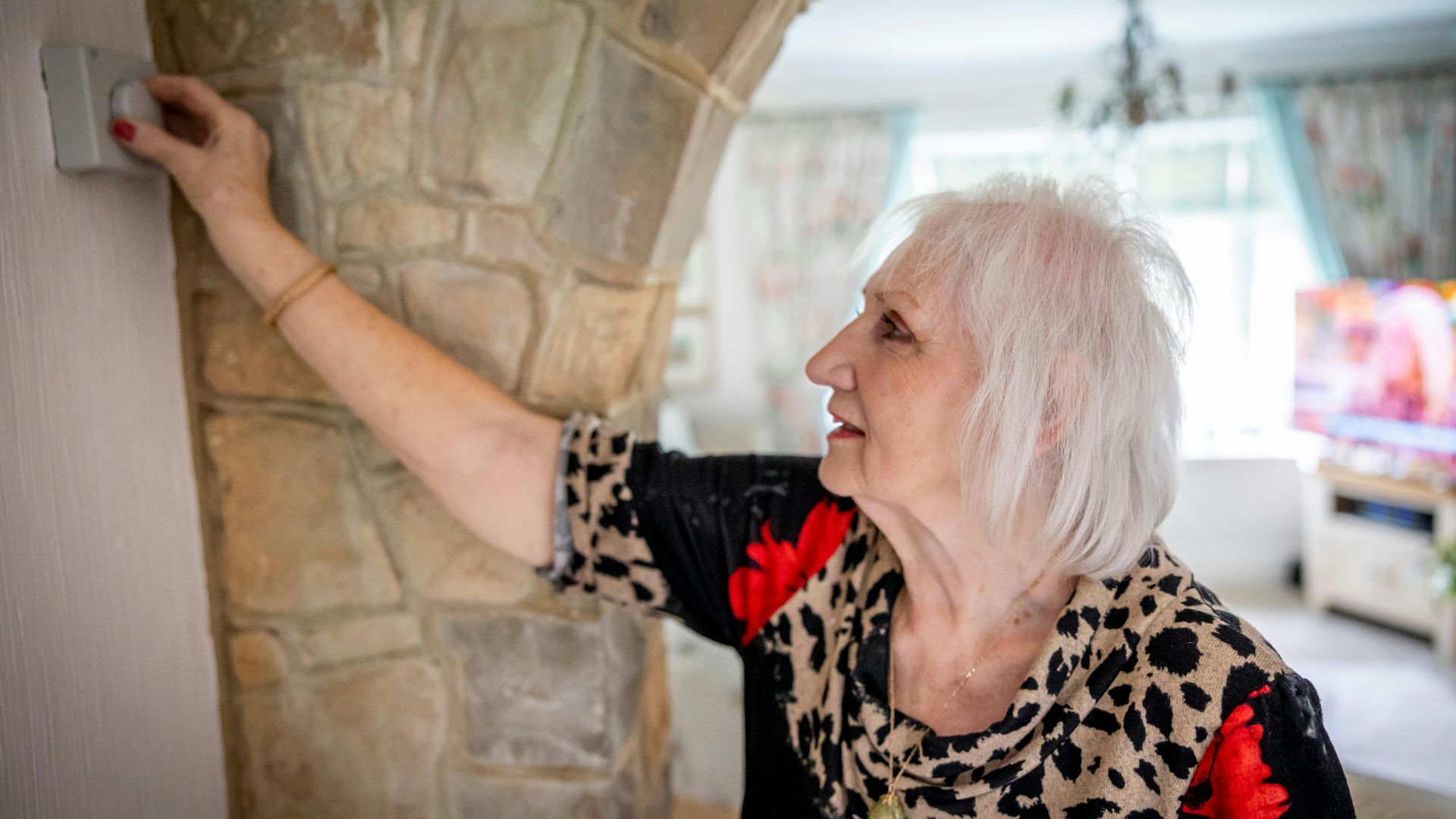 Centre for Ageing Better, Pexels
Centre for Ageing Better, Pexels



